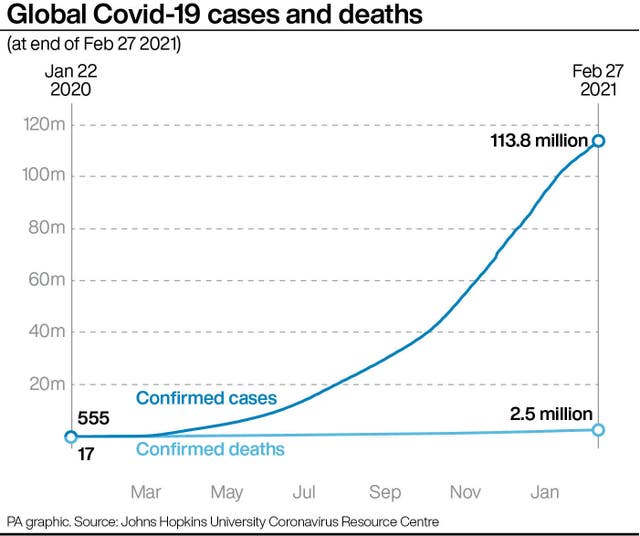
Dean Dunham 9pm - 10pm
28 February 2021, 10:34

Vaccination teams face challenging terrain as they try to get to hard-to-reach areas.
Vaccination teams in Turkey have been travelling across roads covered with ice and snow to reach residents in the country’s isolated mountain villages.
They are seeking to overcome the challenging terrain as the government bids to inoculate 60% of the country’s people against coronavirus over the next three months.
After much effort, medical workers arrived to vaccinate older villagers in Gumuslu, a small settlement of 350 in the central province of Sivas that lies 140 miles from the provincial capital.

“It’s a difficult challenge to come here,” said Dr Rustem Hasbek, head of Sivas Health Services.
“The geography is tough, the climate is tough, as you can see.”
Turkey rolled out the Chinese Sinovac vaccine on January 14 and has so far given out 8.2 million doses.
The vaccine is given in two doses 28 days apart.

Ankara has also ordered 4.5 million doses of the Pfizer-BioNTech vaccine.
Health minister Fahrettin Koca said that Turkey aims to vaccinate 52.5 million people by the end of May.
To date, around 10% of Turkey’s 83 million population has received at least the first dose.
Healthcare workers, older people and people with serious medical conditions were among the first to receive the jab.
“I can’t go to the hospital. I have a heart condition and I get motion sickness in cars,” said Gumuslu resident Zeynep Yigit, 70.

“The doctors came and vaccinated us.”
President Recep Tayyip Erdogan is expected to announce the easing of coronavirus restrictions on Monday.
He previously said the government would evaluate the situation on a province-by-province basis before allowing restaurants, cafes and other shuttered businesses to reopen.
Weekend and evening curfews could also be relaxed.
Still, infections have spiked in recent days, with Turkey recording more than 9,000 daily cases, the highest level since mid-January.

Overall, the country has seen more than 2.6 million cases since March last year and nearly 28,500 confirmed Covid-19-related deaths.
Experts say all confirmed numbers worldwide are undercounts due to missed cases and limited testing.